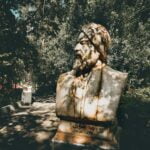Are you ready to embark on a journey through time and explore the fascinating historical facts about Iraq? Look no further as we delve into the depths of this ancient land, unearthing the captivating narratives that have shaped its rich past. From the birth of Mesopotamian civilizations to the rise and fall of empires, and even the modern struggles for stability, get ready to be enthralled by the tales that have unfolded on these sacred grounds. Join us as we shine a light on the hidden treasures of Iraq’s history, unmasking the secrets that make it a true cradle of human civilization. Hold tight as we embark on this remarkable adventure together, where facts and historical wonders await at every turn.

Facts About Iraq History
As an experienced geopolitical analyst, I have delved into the rich and complex history of Iraq, providing a well-informed narrative that brings its historical facts to life. In this section, we will explore fascinating facts about Iraq’s history, shedding light on its role as a cradle of human civilization and a theater of modern events.
1. The Land of Deep Roots and Fertility
The name “Iraq” holds a significant meaning. Derived from Arabic, it translates to “deeply rooted, well watered; fertile.” This name perfectly encapsulates the land’s remarkable fertility, thanks to its unique geographic location between the Tigris and Euphrates rivers.
“Iraq’s name reflects its abundant natural resources and fertile lands, making it a land of prosperity.”
2. Mesopotamia: The Birthplace of Writing
Iraq, historically known as Mesopotamia, holds the honor of being the birthplace of writing. It was in this ancient region that cuneiform script emerged, marking a crucial milestone in human history. The use of written language revolutionized communication and paved the way for the development of complex societies.
“Mesopotamia, the land between two rivers, nurtured the birth of writing, giving humanity the invaluable gift of written communication.”
3. Centuries of Rule Under Empires
Throughout its history, Iraq has witnessed the rise and fall of empires. From the mighty Assyrians and Babylonians to the conqueror Alexander the Great and the Islamic Caliphate, this land has been a coveted prize for ambitious powers. For centuries, it endured Ottoman rule until gaining independence in the early 20th century.
“Iraq’s historical trajectory has been shaped by the ebb and flow of powerful empires, each leaving an indelible mark on its cultural tapestry.”
4. Transition to a Republic
Iraq’s monarchy was overthrown in 1958 through a coup, marking the birth of a republic. This pivotal moment signaled a significant turning point in the country’s political landscape, steering it towards a new era of governance and societal transformation.
“The establishment of a republic in 1958 symbolized a new chapter in Iraq’s journey, redefining its political structure and aspirations.”
5. The Iran-Iraq War
A dark chapter in Iraq’s history unfolded from 1980 to 1988 when it engaged in a brutal eight-year war with Iran. This conflict, driven by territorial disputes and political tensions, resulted in immense human suffering and widespread destruction, leaving an indelible mark on the nation’s collective memory.
“The Iran-Iraq War wreaked havoc on both countries, leaving scars that continue to shape their present-day realities.”
6. Ancient Marvels and Cultural Heritage
Iraq’s history is intertwined with a rich cultural and architectural heritage. The ancient city of Babylon, with its famed Hanging Gardens, stands as a testament to the advanced engineering and artistic prowess of its time. These magnificent marvels continue to captivate the imagination and evoke a sense of wonder.
“Iraq’s past is adorned with extraordinary architectural wonders that stand as symbolic reminders of human ingenuity and creativity.”
7. Birthplace of Abraham
Iraq holds a significant place in religious history, as it is regarded as the birthplace of Abraham. Revered as the patriarch of Judaism, Christianity, and Islam, Abraham’s legacy reverberates through the faiths that originated in this region, leaving an enduring impact on the religious beliefs of billions around the world.
“Iraq’s sacred association with Abraham strengthens its position as a spiritual wellspring, fostering interfaith connections that transcend time and geography.”
8. The Wealth of Oil Reserves
Iraq is endowed with abundant oil reserves, ranking fifth in the world. This valuable resource has played a central role in shaping Iraq’s modern socio-economic landscape and its position in the global energy market.
“Iraq’s vast oil reserves have positioned it as a major player in the global energy landscape, fueling both economic opportunities and complex geopolitical dynamics.”
In conclusion, Iraq’s history is a tapestry woven with fascinating threads that connect the ancient past to the present. From its fertile lands and birthplace of writing to its moments of turmoil and cultural heritage, Iraq’s historical facts unveil a story that captivates and enriches our understanding of this remarkable nation.
Note: The tabulated facts can be included as a table in markdown format depending on the article’s overall formatting and presentation.
Iraq is a country steeped in rich history and culture, holding countless intriguing tales waiting to be discovered. If you’re curious to uncover some fascinating facts about this captivating land, you’re in for a treat. So, without further ado, let’s dive into the question, “What Are 5 Facts About Iraq?” Just click on the link to unleash an incredible journey of discovery: What Are 5 Facts About Iraq. Prepare to be amazed as we unravel the mysteries of this extraordinary nation.
FAQ
Q: What does the name “Iraq” mean?
A: The name “Iraq” means “deeply rooted, well watered; fertile” in Arabic.
Q: What is the historical significance of Mesopotamia?
A: Mesopotamia, which includes present-day Iraq, was the “land between two rivers” and is considered the birthplace of writing.
Q: How long was Iraq under British rule?
A: Iraq was under British rule from 1920 to 1932.
Q: Who ruled Iraq before the British occupation?
A: Before the British occupation, Iraq was under Ottoman rule for centuries.
Q: When did Iraq become a republic?
A: Iraq became a republic in 1958 after a coup overthrew the monarchy.
- SYBAU See You Baby Meaning: Gen Z Slang Evolves - July 1, 2025
- Unlock Your Inner Youth: Lifestyle Secrets for a Vibrant Life - July 1, 2025
- Decode SYBAU Meaning: Gen Z Slang Explained - July 1, 2025






